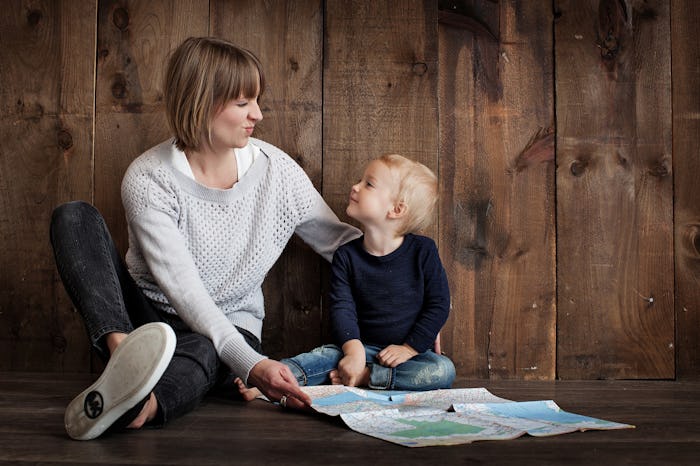One of the things I had to learn in the years my kids were beginning to speak is the reason why talking to your kid like an adult is so important rather than using baby talk. By "baby talk" I don't mean what Parenting called "parentese," that sing-songy voice parents use when talking to infants and toddlers (also known as "caregiver speech".) I am referring to the way parents sometimes talk to their kids in gibberish or use completely made up words for objects before the child has been given the opportunity to learn what the objects are actually called.
I should confess that when my first child was born, we used a lot of baby talk in the house. I cringe every time I watch an old home video and hear myself babbling to my confused toddler, "Wanna baba wawa?" to mean "Want a bottle of water?" Ugh. Thankfully, that only lasted until he started making his own phonetic sounds, and I made a conscious effort to speak to him in a way that sounded less totally obnoxious and more like real adult speech.
No, I didn't suddenly bust out my multisyllabic SAT vocabulary. Instead, I chose real words using the higher pitched, wide, exaggerated intonation changes that CNN reported babies prefer and pay more attention to: "Do you see the kitty?" vs. "Wook at the widdle meow meow." So much better, right?
According to The Hanen Centre, a nonprofit charity for early language intervention, parents should use proper grammar when speaking to their kids. Additionally, the site noted that telegraphic speech, or using only content words with little or no grammar, deprives children of the helpful cues and information that come from grammatical speech. Keep in mind the way you would structure a sentence to an adult and speak the same way to your child.
Finally, making the effort to talk to your kids like an adult is also important as they get older and start to go to school. This is the time when they will be put in the position to verbalize with other kids, and non-familial adults who may not understand the personalized baby talk you use at home. Very Well warned that kids who regularly use baby talk or gibberish at school may be screened for speech delays and other developmental issues. Set a good example of effective communication early by talking to your kid like an adult from the start.
